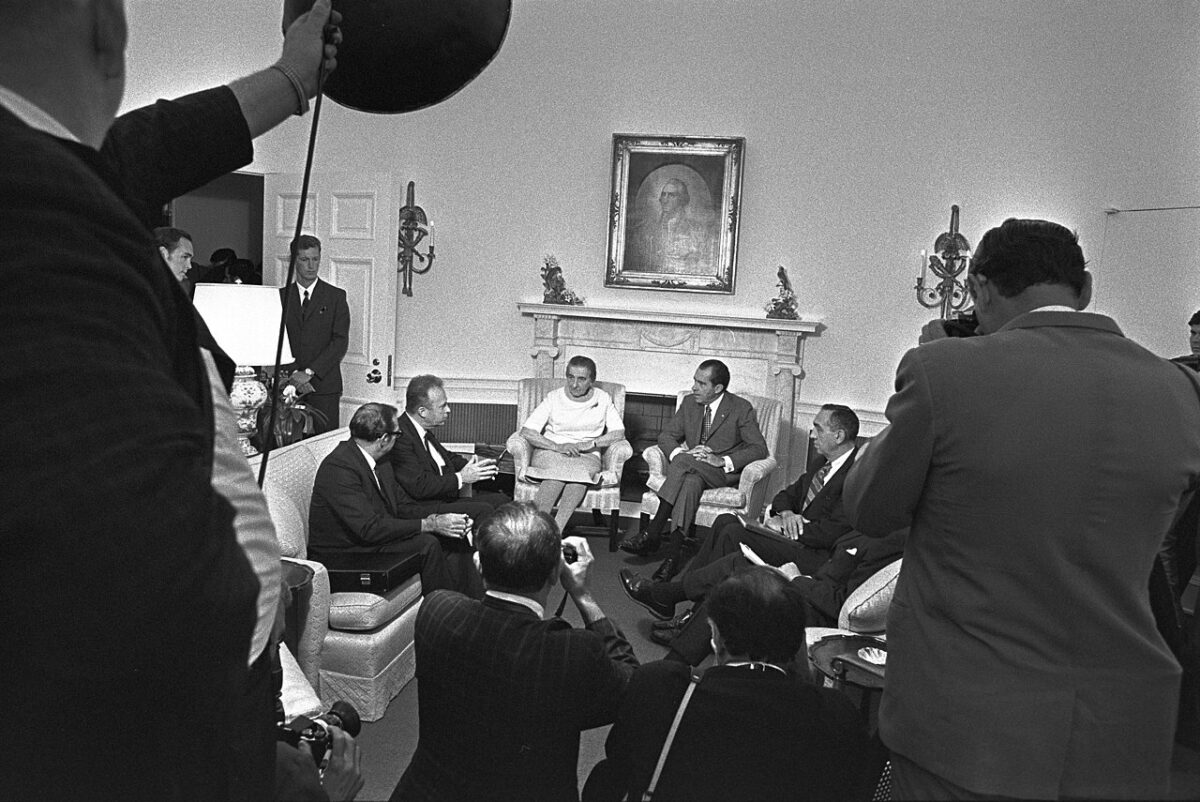There was a time in American politics when Israel could usually count more on Democrats than Republicans for understanding and support.
But since the accession of Donald Trump to the presidency, the pendulum has swung the other way. In fact, this is a historic process that has actually unfolded incrementally over the decades.

A Democratic president, Harry Truman, recognized Israel as a sovereign and independent state in 1948, but a Republican president, Dwight Eisenhower, twice threatened Israel with sanctions during his term of office and largely regarded Israel as a liability.
John F. Kennedy, a Democrat, broke with the past, becoming the first president to sell Israel weapons. Until then, the export of U.S. arms was illegal.
The 1967 Six Day War was a watershed in Israel’s ties with the United States. In its wake, Israel earned the bipartisan backing of both Democratic and Republican presidents and the U.S. Congress. Under the presidencies of Lyndon John (Democrat) and Richard Nixon (Republican), Israel and the United States formed an informal alliance against the Soviet Union and its major Arab allies, Egypt, Syria and Iraq.
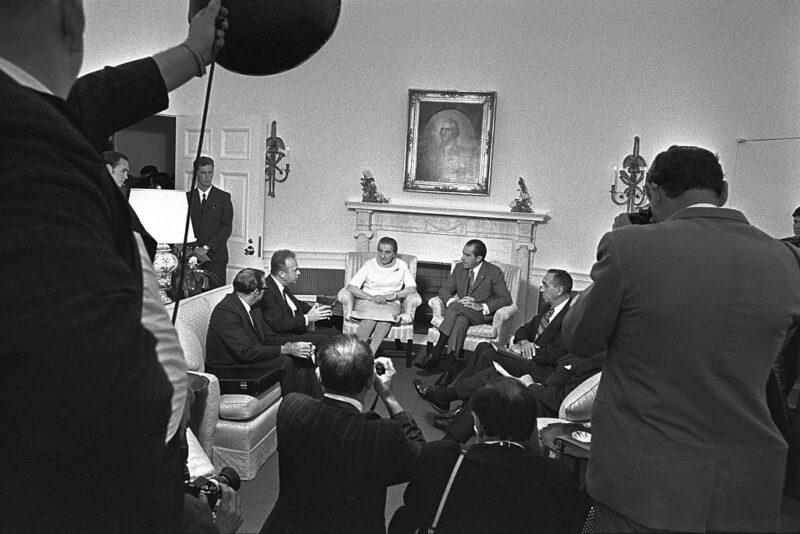
Despite Israel’s growing friendship and partnership with the United States, sharp disagreements periodically erupted. Washington and Jerusalem were at odds over a number of pivotal issues.
The Israeli settlement construction project in the occupied territories was a problem, as was Israel’s reluctance to withdraw from the entire Sinai Peninsula following the 1973 Yom Kippur War. Israel’s annexation of the Golan Heights in 1981 caused an uproar.
Washington also raised concerns or objections over Israel’s retaliatory raids into neighboring Arab countries and its attacks on Palestinian guerrilla bases in Lebanon and Jordan.
Israel’s destruction of Iraq’s nuclear reactor in 1981 prompted the U.S. vice-president, George H.W. Bush, to issue a bitter denunciation. Aspects of Israel’s invasion of Lebanon in 1982, particularly its bombing raids of Beirut and the Sabra/Shatila massacre in Palestinian refugee camps, nearly precipitated a crisis between the two countries.
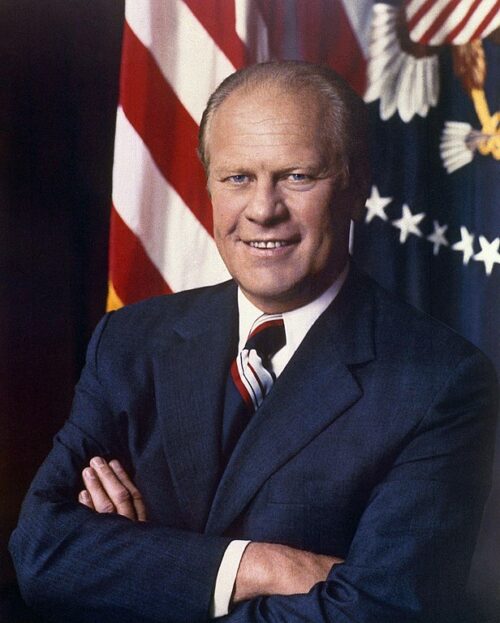
These tensions reached a peak of intensity under four presidents: Gerald Ford (Republican), Jimmy Carter (Democrat) and Ronald Reagan (Republican) and George H.W. Bush (Republican). Under the presidency of Bill Clinton (Democrat), Israel and the United States enjoyed cordial bilateral relations. This was also the case during the presidency of George W. Bush (Republican).
When Barack Obama, a Democrat, was the president, the United States and Israel clashed over the expansion of Israeli settlements in the West Bank. As a result, Obama’s relationship with Israeli Prime Minister Benjamin Netanyahu — a Republican in all but name — was invariably cool.
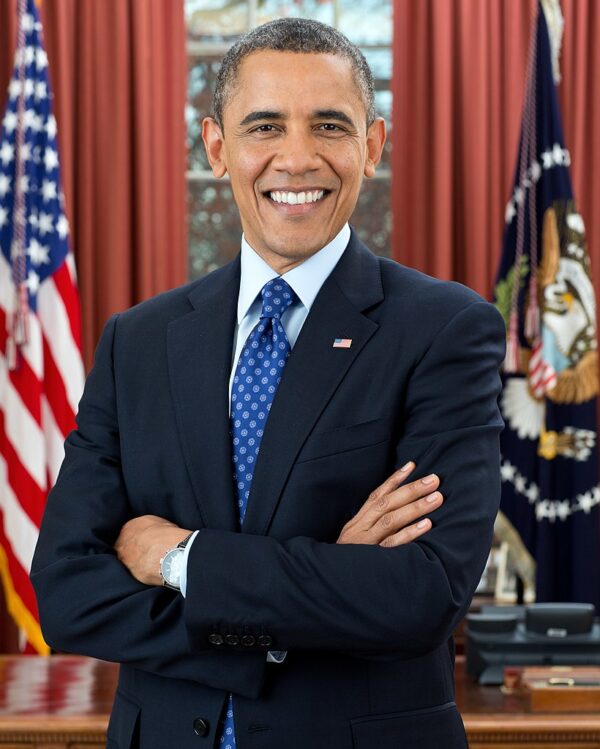
Israel was shocked and disappointed when, in the waning months of Obama’s presidency, the United States abstained on a United Nations Security Council resolution (2334) condemning Israeli settlements. Washington’s abstention allowed the resolution to pass.
Despite disagreements, Israel and the United States managed to maintain their strong strategic relationship. As James Stavridis, the former U.S. supreme commander of NATO, observed, “Our best military partner in the (Middle East), by far, is Israel …. The U.S. would be well served to more fully develop its partnership with the Israel Defence Forces …. It truly is a case of two nations that are unarguably stronger together…”
Since the Trump era, the two allies have deepened their ties, and the Republican Party has thrown its full weight behind Israel.
The Democratic Party, in general, has expressed reservations about Netanyahu’s settlement policy and his disavowal of a viable two-state solution to resolve Israel’s conflict with the Palestinians. Unlike Trump, Joe Biden, Trump’s Democratic challenger, has been consistently supportive of Palestinian statehood.
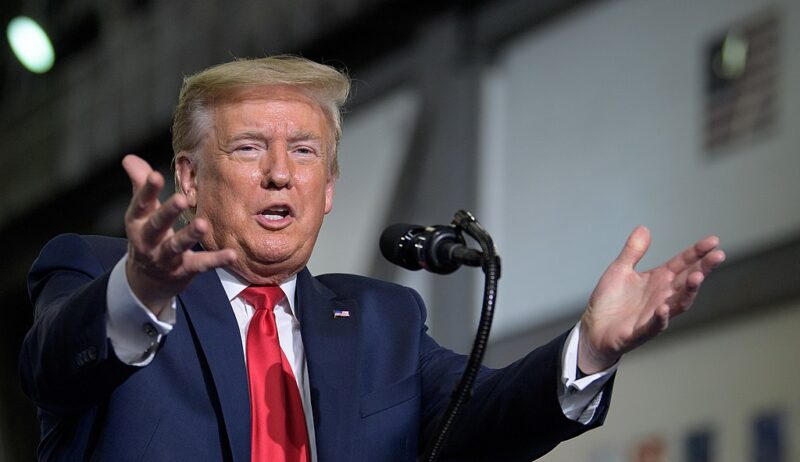
Keeping faith with his election campaign promise, and in a stunning departure from U.S. policy, Trump recognized Jerusalem as Israel’s capital and transferred the U.S. embassy from Tel Aviv to Jerusalem. The Democratic Party opposed these provocative moves. Its progressive wing has been especially critical of Israel, judging by the comments of Ilhan Omar (Minnesota), a Muslim member of the House of Representatives.
Much to Netanyahu’s delight, Trump recognized Israel’s sovereignty over the Golan Heights, while Secretary of State Mike Pompeo claimed that Israeli settlements in the West Bank do not contravene international law.
Last January, after considerable delays,Trump unveiled an Israeli-Palestinian peace plan, which was heavily tilted in Israel’s favor. Democrats offered varied responses, from cautious optimism to outright rejection.

The plan endorses Israel’s annexation of 30 percent of the West Bank and allows it to keep all its settlements, plus the Jordan Valley. The remainder of the West Bank is assigned to a territorially disconnected Palestinian state cut into enclaves by Israeli settlements, roads and army camps.
Under Trump’s plan, Israel would have security control over the West Bank, and the western and eastern sectors of Jerusalem would be Israel’s capital.
The Palestinian Authority has roundly rejected the proposal as a betrayal. Arab states have generally denounced it.
The Israeli government’s announcement that it will annex parts of the West Bank, possibly starting in July, has elicited completely different reactions from the Democratic and Republican parties.
Several days ago, nearly 200 Democrats in the House of Representatives signed a letter warning Israel that unilateral annexation would be a major mistake, a setback to efforts to achieve peace, a threat to both Israel’s security and democracy, a blow to its standing in the international community, and an impediment in its relations with the United States.
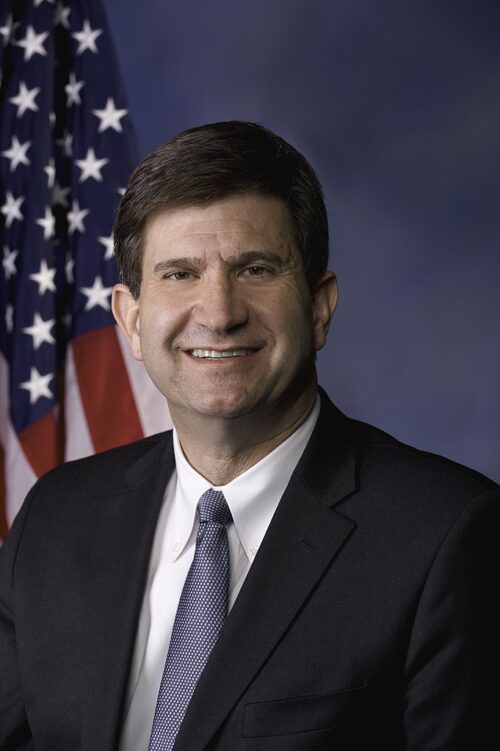
The authors of the letter — a milder version of a similar letter signed by 19 U.S. Democratic senators last month — were Jan Schakowsky (Illinois), Brad Schneider (Illinois), Ted Deutsch (Florida) and David Price (North Carolina).
The signatories included Majority leader Steny Hoyer (Maryland), Mark Pocan (Wisconsin), the co-chairman of the Progressive Caucus, and Ro Khanna (California), the co-chairman of Bernie Sanders’ 2020 presidential campaign.
In the face of these critical letters, the Republican congressional leadership dispatched a letter to Netanyahu backing Israel’s right to determine its borders.
The letter read: “We write to reaffirm the unshakeable alliance between the United States and Israel, to emphasize that Israel has the right to make sovereign decisions independent of outside pressure, and to express our support for you as you make such decisions in your capacity as Israel’s democratically-elected prime minister.”
Garnering the signatures of 116 out of 198 Republicans, the letter was sponsored by the first, second, and third-ranked Republicans in the House of Representatives — Kevin McCarthy (California), Steve Scalise (Louisiana) and Liz Cheney (Wyoming) — and supported by the two Jewish members of the Republican caucus, Lee Zeldin (New York) and David Kustoff (Tennessee).
In addition, several Republicans in the U.S. Senate sent a letter to Trump endorsing his peace plan and Israel’s partial annexation of the West Bank. It was signed by Ted Cruz (Texas), Tom Cotton (Arkansas), Kevin Cramer (North Dakota), Thomas Tillis (North Carolina), Cindy Hyde-Smith (Mississippi), John Barrasso (Wyoming) and Joni Ernst (Iowa).
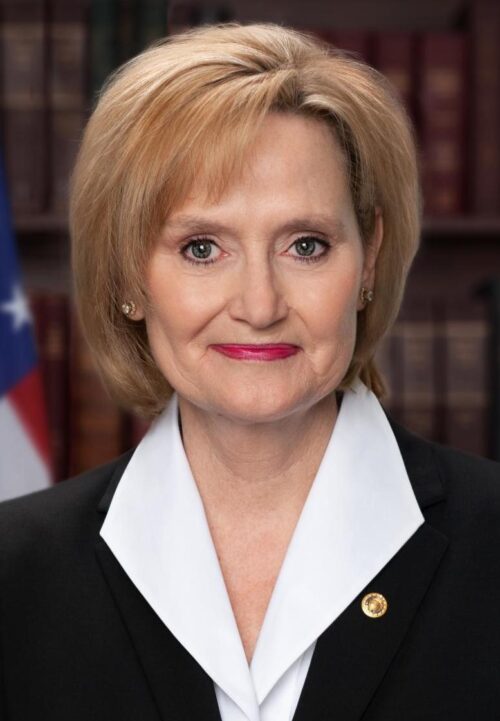
No such letters have come from the Democrats, a situation that underscores a new reality in the United States. Democratic lawmakers, to be sure, back Israel and its right to secure borders. But Republicans go further, supporting the far-right Zionist Revisionist version of Zionism and the expansion of Israel’s borders deep into the West Bank.
